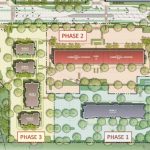The Finance Linked Individual Subsidy Programme (FLISP), or Help-Me-Buy-A-Home scheme, has been remodelled into First Home Finance, with the aim to improve access to affordable housing by providing subsidies to help people secure mortgages with financial institutions, Human Settlements Minister Mmamoloko Kubayi has announced.
Additionally, First Home Finance has been bolstered by partnerships with development finance institutions, commercial banks and other financing institutions.
Households that earn from R3 501 to R22 000 a month will be eligible for subsidy support along a sliding scale, with greater support provided to lower-income earners, from a maximum of R130 000 to a minimum subsidy of R30 000 for first-time home buyers, State-owned finance agency National Housing Finance Corporation (NHFC) business development manager Mathews Sidu outlined during a February 24 briefing.
This support will help homeowners to secure mortgage loans from financial institutions, and can also help to cover attorney conveyancing costs, which many first-time home buyers find to be a challenge, he said.
“The Department of Human Settlements wants to ensure everyone has a house, whether they are working or not. This scheme is a government instrument aimed at helping working people to buy a home for the first time. They often find it difficult to qualify for a homeloan, but also cannot qualify for fully subsidised housing, as they are employed. This instrument is meant to bridge that gap,” he explained.
The ability of households to improve and upgrade homes and properties has a number of socio-economic benefits, emphasised Kubayi.
However, there is a lack of affordable housing stock accessible to this market, with a large proportion of loans granted being for houses priced above R700 000.
The number of mortgage loans granted to households with income below R15 000 a month is less than 2% of mortgage loans granted, and this situation is worse for households earning below R10 000 a month, with less than 1% mortgage loans granted to this segment, she highlighted.
“To meet the housing demand for all market segments, we need to crowd-in investments from public and private sectors, so that we can accelerate the development of new sustainable settlements,” Kubayi emphasised.
The minister was speaking in the Sky City development, which has 6 000 houses and 20 000 people living in the suburb, in Garthdale, Gauteng. It was built by residential development company Cosmopolitan Projects to provide affordable, high-quality housing, and the company has also recently built sets of apartments.
The suburb has amenities, such as children’s play parks, sport grounds and daycare centres. Cosmopolitan Projects would next build a clinic and a church for the community, said Cosmopolitan Projects director Kgothatso Meka.
The Sky City project will total R1.5-billion. The infrastructure for the first five phases has already been completed at a cost of R610-million, together comprising 5 827 residential stands and 534 high-density units, a shopping centre, a filling station and a transport hub, and there are six education and seven social node stands for community facilities.
Further, first-time home buyers of houses and apartments in Sky City will be helped to apply for First Home Finance subsidies.
“This project exemplifies the meaning of a sustainable human settlement in that it has brought together commercial and economic activities, and social and mobility amenities. We need more of this kind of projects and we need the private sector to work with us and invest in project development,” said Kubayi.
“What matters the most with all human settlements projects, in the end, is that a family receives a house, a home, a roof over their heads, and decent shelter that brings comfort and security.
Government must create an enabling environment for the private sector to play its role, including by removing red tape by ensuring transparent and efficient approval processes, including from municipalities, and faster responses from grant agencies, specifically the NHFC in this case.
“Responses should be automated and applications must be traceable. There must be efficiency and performance for First Home Finance to have the intended impact and for the NHFC to fulfil its role. We will continue to assess its and the NHFC’s performance,” she added.
The NHFC is pursuing a digital transformation, and the new home owners subsidy portal is meant to be quick and easy for people to use from any connected device.
However, the NHFC has also increased its protection of privacy in line with the Protection of Personal Information Act, as it will be handling, storing and processing personal information. It has improved its information security and cybersecurity to ensure it meets its obligations to protect personal information, said Sidu.
link











More Stories
Gensol Engineering, Sterlite Tech, Adani Enterprises, LIC Housing Finance, TCS, RPP Infra, and more
Who Is in DOGE? Tracking Its Staffers and Allies in the Federal Government
Watertown City Council Approves Extensions for Ten Housing Development Projects | Local News